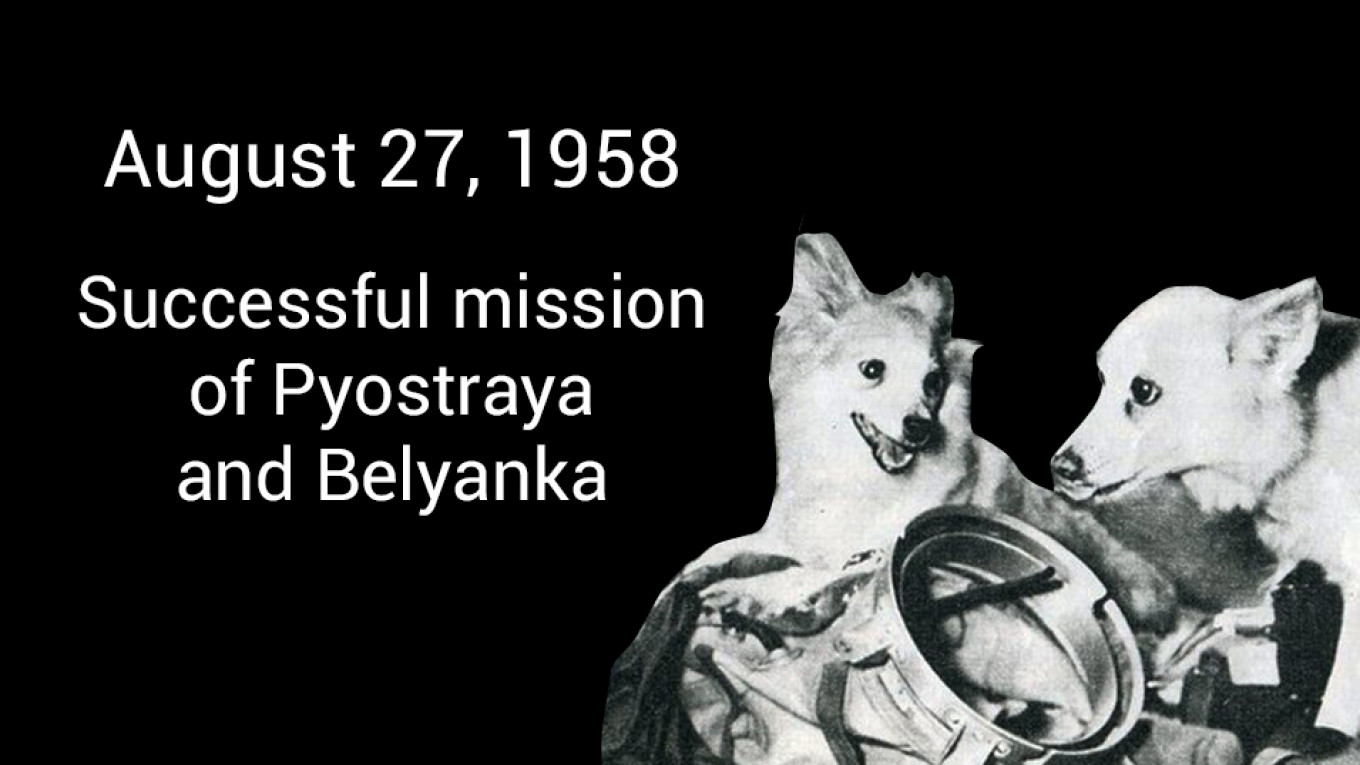On Aug. 27, 1958, the Soviet Union launched the dogs Pyostrya and Belyanka into space. The craft, a R-5A rocket, set a new record in terms of weight-to-height ratio, as it reached 453 kilometers above the earth’s surface at a weight of over 1,500 kilograms. The dogs safely returned to earth following the flight.
Between the years 1951 and 1966 the USSR sent dogs to space or earth's outer atmosphere on 36 occasions, with some dogs taking repeat flights. Dogs were favored because Soviet scientists considered them suitable to remain calm during long periods of inactivity, which they would have to endure in the space crafts. The final dog flight in February 1966, for instance, saw Veterok and Ugolyok orbiting the earth for 22 days.
Soviet scientists used dogs in test flights to discover the effect of space travel on living creatures. Factors monitored were mostly physiological, observing how elements of rocket flight such as high G-forces, intense vibration, exposure to cosmic radiation, weightlessness and physical inactivity impacted the body.
Overall, of the 36 dog missions, 25 resulted in the safe return of the dogs. Chief rocket designer Sergei i Korolyov was known for his love of dogs, and in general the dogs were treated as crew members rather than objects of experimentation. The deaths of dogs on 11 of the flights were felt personally by Korolyov and the researchers.
Test results from dog missions would help the Soviet Union win the space race with the U.S., as they succeeded in sending the first human into outer space: Yury Gagarin on April 12, 1961.
A Message from The Moscow Times:
Dear readers,
We are facing unprecedented challenges. Russia's Prosecutor General's Office has designated The Moscow Times as an "undesirable" organization, criminalizing our work and putting our staff at risk of prosecution. This follows our earlier unjust labeling as a "foreign agent."
These actions are direct attempts to silence independent journalism in Russia. The authorities claim our work "discredits the decisions of the Russian leadership." We see things differently: we strive to provide accurate, unbiased reporting on Russia.
We, the journalists of The Moscow Times, refuse to be silenced. But to continue our work, we need your help.
Your support, no matter how small, makes a world of difference. If you can, please support us monthly starting from just $2. It's quick to set up, and every contribution makes a significant impact.
By supporting The Moscow Times, you're defending open, independent journalism in the face of repression. Thank you for standing with us.
Remind me later.






